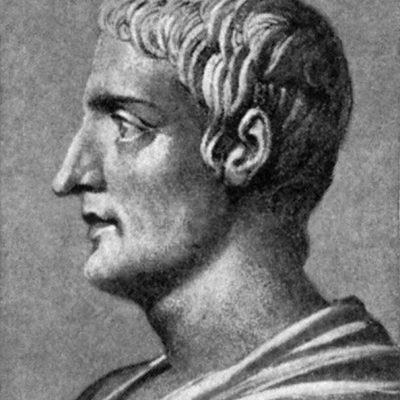Publius Cornelius Tacitus, also called Tacitus, was born in 55 CE, most likely in Gaul. His other name may have been Gaius. Tacitus is called a king of Roman historians. He was learning rhetoric from Quintilianus.
In 75 CE, he started his public activity as a legal defence. Then he became a questor, which allowed him to sit in the Senate. In 77 CE, he married a daughter of a consul Agricola, who conquered Britain and became its intendant. In the first years of Domitian rule, he was honored a position of tribune of the people, or, as other sources suggest, became an aedile. In 88 CE, he became a praetor and his career speeded up. In 97 CE, he became a proconsul, and in 112 became a ruler of the province of Asia. He was the first of his house to become so high official in the state (homo novus).
As a historian, he probably had an unlimited access to the state archives, thanks to which, his books teem with facts and excellent chronology. The author tried to be objective, writing without any bias and relying on credible sources. His works are related to the period from 14 to 70 CE and are mainly dedicated to Roman legions of the 1st century CE partaking in wars, campaigns and battles of that times. Tacitus names commanders, officers, and also legionaries. In his works, he virtually made no mistakes whatsoever.
Nowadays, his works are the main source of knowledge of the legions, military science and history of Rome. His “Annals”, “Histories”, “The Life of Agricola”, and “Germania” are virtually the repositories of knowledge and information about Roman Empire in the first century CE.
He died in 120 CE.
Works |
|







